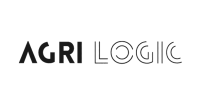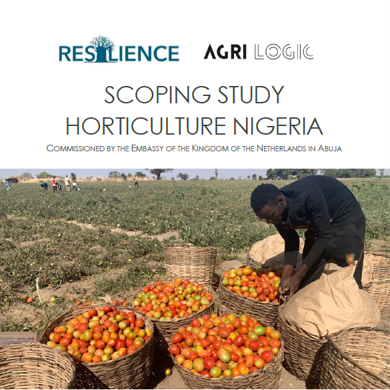In preparation for a post-covid world, support Nigerian companies in horticulture through business coaching in strategy finance, supply chain management and human resource management.

ESG due diligence
Assessment of environmental and social risks in the wider cashew sector one trading company specifically. The due diligence was performed within a 2 week timeframe, including review of company documents, desk research and field visits in two African countries.

Baseline studies for income diversification
For a major trader preparing to conduct several income diversification pilot projects, conduct baseline studies to assess current income levels and income sources of farmers in their supply chain. Household poverty was modeled using PPI and living income assessed in comparison to various benchmarks.

Commodities Export Development Nigeria
For AFEX Nigeria, an innovative commodities exchange connecting smallholder farmers to large scale buyers, we were contracted to develop commodities export with an initial focus on ginger and cocoa.
Based on a thorough due diligence to assess credibility, we generated recommendations to adjust the domestic trading template to export and facilitated market introductions to cocoa and spices buyers.

Made-by-women specialty cocoa and chocolate
Thirty Six Foods has partnered with the Able Women Multipurpose Cooperative in Cross-River State and Rokbar to bring high quality and sustainable chocolate to market both in Nigeria and The Netherlands. The partners are creating a chocolate bar fully made by women and produced in Nigeria. The partnership aims to empower female cocoa farmers through access to specialty cocoa markets.
As part of the project partnership, Agri-Logic conducted a baseline measurement on farmer livelihoods and provided training on cocoa quality to the farmer’s cooperative. Agri-Logic also took on project management and reporting to partners.
The Able Women are now formally registered, trained and have a solar dryer in place. A commercial agreement between the cooperative and the chocolate company will ensure buying of cocoa going forward.

Cocoa sustainability management Nigeria & Ghana
The cocoa sector is constantly considering sustainability. Low quality and low yields are a continued focus. Livelihoods, poverty, nutrition and education require attention. Most large chocolate makers have committed to sourcing 100% certified as sustainable in 2020. Many of these end buyers require increased volumes of certified cocoa, while considering their impact targets beyond 2020. All international traders and several local exporters have partnered with these large chocolate brands for sustainable impact.
Through our consulting branch in Nigeria, we support implementers throughout West Africa in designing the project objectives, organization structure, traceability procedures and budget. We are working as a project liaison monitoring progress and impact. We have analysed the project baseline, and are monitoring progress. We identify any project risks that might affect certification status, our outreach targets and our credibility. We look for opportunities to increase impact.
We integrate sustainable impact with commercial objectives. Since 2016, we have supported our clients and partners who have reached out to a significant number of farmers across West Africa, and the numbers and impact keep expanding annually. UTZ certification was obtained, and the field presence is leveraged to increase impact on livelihoods.

Expected Impact of Fertilizer Investment in Nigeria
For an international impact investor, Agri-Logic developed a point of view on the potential development impact of investment in fertilizer in Nigeria.
With 34,000,000 hectares of arable land, Nigeria has the potential to be an agricultural powerhouse. Despite this, farmers constantly struggle with low yields and low product quality and the country is still a large importer of food and food products. Current average application rate of fertilizer in Nigeria is estimated at 11 kg/ha while recommended fertilizer application rates are ~130 kg/ha. Increased fertilizer application rate could be of major advantage in improving production quality and quantity, thereby enabling sustained productivity growth. Other commercial opportunities could also be derived along the fertilizer value chain.
Agri-Logic estimated impact based on a representative basket of cassava, maize, and tomatoes; three major crops in Nigeria. A literature review on fertilizer application for these crops provided useful information on impact potential in production quantity and income as a direct result of increased fertilizer use at recommended application rate. Field surveys with farmers and other stakeholders gave an understanding of the reality of fertilizer application and factors affecting its use, prices and availability across the country.
The study provided an overview of the current fertilizer market in Nigeria, as well as its potential impact on yield, livelihoods and food security. The client was provided with an estimated impact on smallholder farmers’ income as well as food self-sufficiency for the population of Nigeria. We also indicated risks and success factors to be monitored in implementation.

Logistics and food losses perishable crops
The Netherlands has a policy to integrate Foreign Trade and Development Cooperation. Food security and rural development are a top priority in development cooperation. Market inefficiencies in logistics cause post-harvest losses of perishable products. Food waste negatively impacts both food security for local consumers, and the income of many smallholder producers.
Identifying and addressing market opportunities in logistics can improve these issues in food security and rural development. This also provides commercial opportunities for Dutch and local entrepreneurs in developing local markets and foreign trade.
As part of a global study, we mapped the value chains for tomatoes, capsicum and pineapples in Nigeria. Contextual interviews provided an understanding of the value chains, whereas data collection and surveys provided deeper insight into volumes and food losses, prices and value distribution.
The report was submitted to the Netherlands Embassy in Lagos, Nigeria for consolidation into the global study.
The study provided insight into food losses in fruit and vegetables (30-60% depending on the product), formal and informal import and export, investment needs in processing, and export quality requirements.
The report can be shared upon request.


